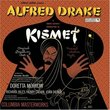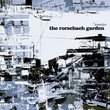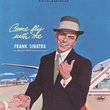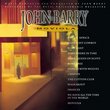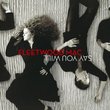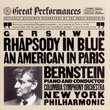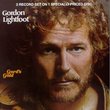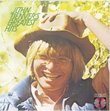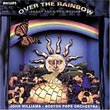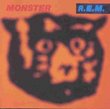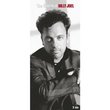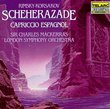| All Artists: Aaron Copland, Leonard Bernstein, New York Philharmonic Title: Copland: Rodeo/Billy The Kid Members Wishing: 0 Total Copies: 0 Label: Sony Release Date: 10/25/1990 Genre: Classical Styles: Ballets & Dances, Ballets, Historical Periods, Modern, 20th, & 21st Century Number of Discs: 1 SwapaCD Credits: 1 UPC: 074643672726 |
Search - Aaron Copland, Leonard Bernstein, New York Philharmonic :: Copland: Rodeo/Billy The Kid
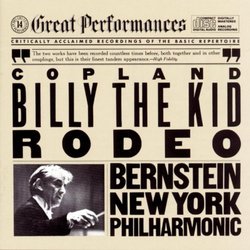 | Aaron Copland, Leonard Bernstein, New York Philharmonic Copland: Rodeo/Billy The Kid Genre: Classical
If Copland's own recordings of his music have the warmth of a soft summer night, those by Leonard Bernstein convey the blazing heat of noon. In his later remakes of several of these scores for Deutsche Grammophon, Bernstei... more » |
Larger Image |
CD DetailsSynopsis
Amazon.com If Copland's own recordings of his music have the warmth of a soft summer night, those by Leonard Bernstein convey the blazing heat of noon. In his later remakes of several of these scores for Deutsche Grammophon, Bernstein exhibited a tendency toward overly-nuanced readings. But his earlier accounts with the New York Philharmonic, recorded by CBS in the late 1950s and early 1960s, are still incomparable in their vitality and impetus. Bernstein's way with the Western ballets is exuberantly personal and persuasive. He has the ability to move between delicacy and brashness, always getting the gestures right, and he delivers magical characterizations of both scores. The Phiharmonic's playing, while sometimes a bit raw, is confident and rhythmically secure; there is certainly nothing to apologize for here. There is a wonderful sense of immediacy to Bernstein's account of the Appalachian Spring Suite, in which the New Yorkers give a virtuosic account of themselves, playing in a rhythmically incisive fashion that puts Copland's account with the London Symphony in the shadows. The couplings are a mixed bag, however. Bernstein always had the measure of El Salon Mexico, and gives a rousing account of it here. But the so-called Fanfare for the Common Man is lifted from his recording of the Third Symphony; its beginning is not the same as that of the real fanfare. Both recordings have been wonderfully remastered by their original producer, John McClure, and have excellent presence and a palpable sense of atmosphere in the quiet pages. --Ted Libbey Similar CDs
Similarly Requested CDs
|
CD ReviewsIncomparable! 09/01/2000 (5 out of 5 stars) "No one else has come close to Bernstein's accounts Copland's music- including Copland himself. In every respect, this is best recording of Rodeo I've heard. The tempos are, if anything, a bit on the fast side of average. The recording quality is quite good, though the woodwinds can be a bit too quiet." For Rodeo alone, this beats the competition hands down Alan Majeska | Bad Axe, MI, USA | 10/07/2005 (5 out of 5 stars) "Leonard Bernstein's Columbia recording of Copland's "Rodeo" with the New York Philharmonic, made in 1960 still beats the competition hands down for sheer excitement and power. Lenny's "Buckaroo Holiday" (I) is wonderful: very fast and spirited, and no holes barred, like riding a bucking bronco. When I first heard this recording on LP in 1974, I could hardly restrain myself, as it is not only fast, but well accented, and the recording really backs up what Bernstein was trying to do in this piece. Tempos are all sensible, but fast where needed, especially in I and IV, "Hoe down." I have heard other recordings: Dorati/Detroit (London), Johanos/Dallas (Vox), Abravanel/Utah (MCA), and they all have their merits, but for sheer excitement, Bernstein is the best to have. "Billy the Kid", recorded in 1959, is also well recorded and performed. Bernstein's tempos are sensible, and he does alot with the crescendos and repeats in the final movement, "The Open Prairie" to make it more interesting than some conductors do. I also like recordings of this work by James Judd/New Zealand Symphony (Naxos), Johanos/Dallas (Vox) and Dorati/London Symphony (Philips Mercury - more than just the suite recorded here), but again Bernstein is very fine in comparison with any of them, although he doesn't stand out as much as with "Rodeo." Recommended, either in this recording, or the Bernstein Century edition, also on Sony Classical, which also includes Bernstein/New York Philharmonic's 1961 Columbia recording of "Appalachian Spring."" Vinyl replacement Anne Greeson | Long Beach CA | 01/07/2008 (5 out of 5 stars) "Loved the music on vinyl and want it on CD. Sounds as good as the original only without the scratches."
|

 Track Listings (12) - Disc #1
Track Listings (12) - Disc #1